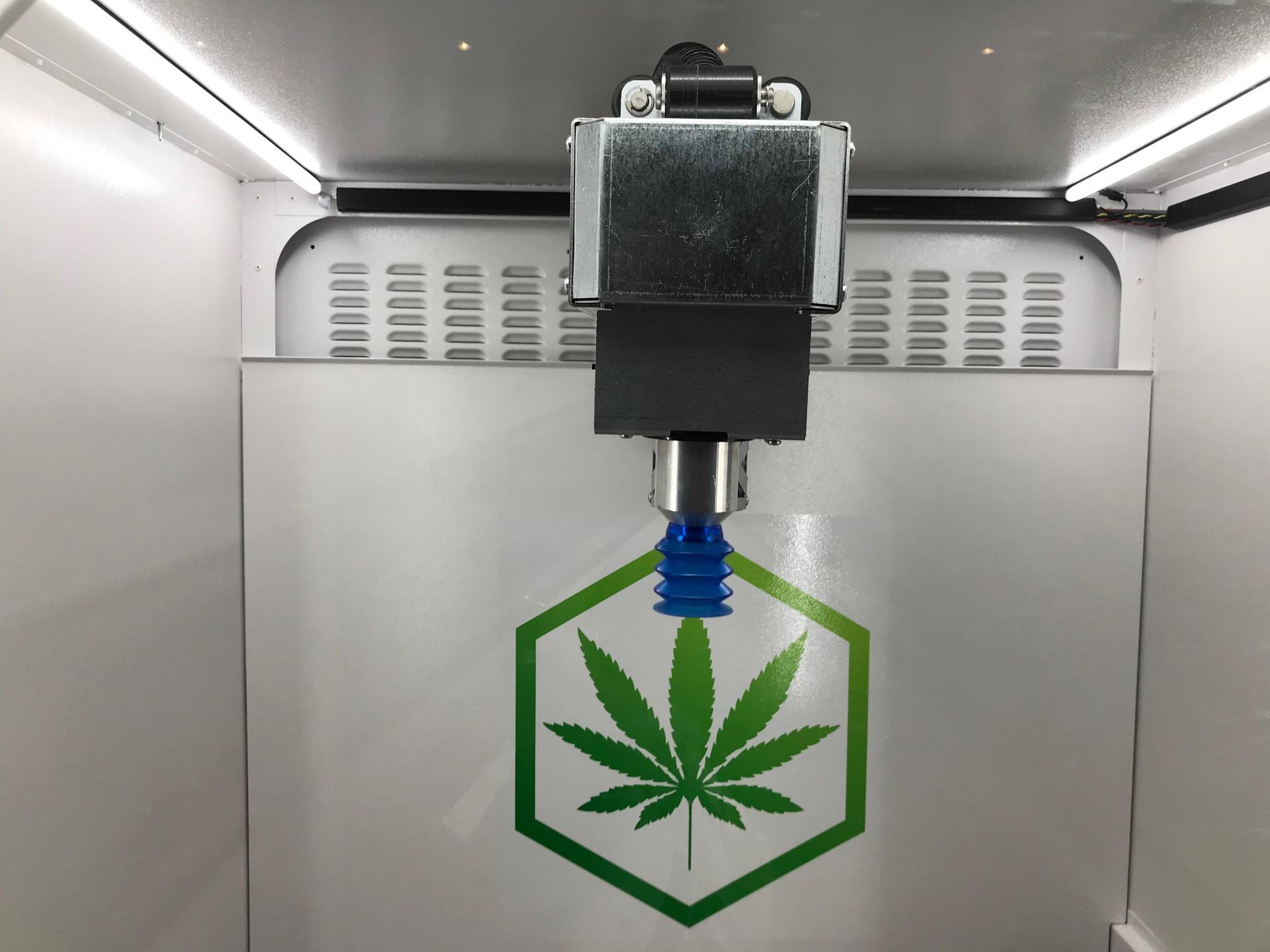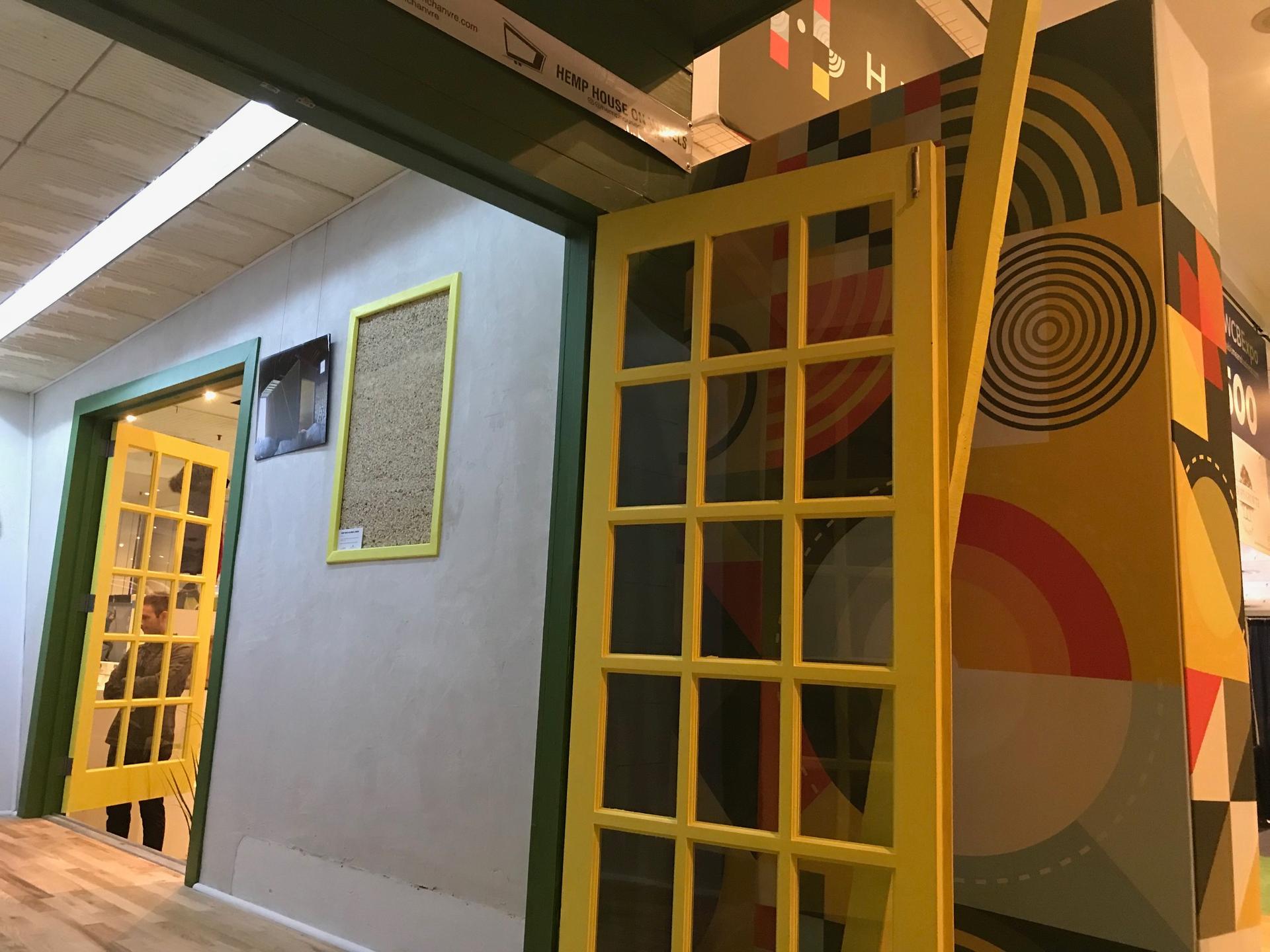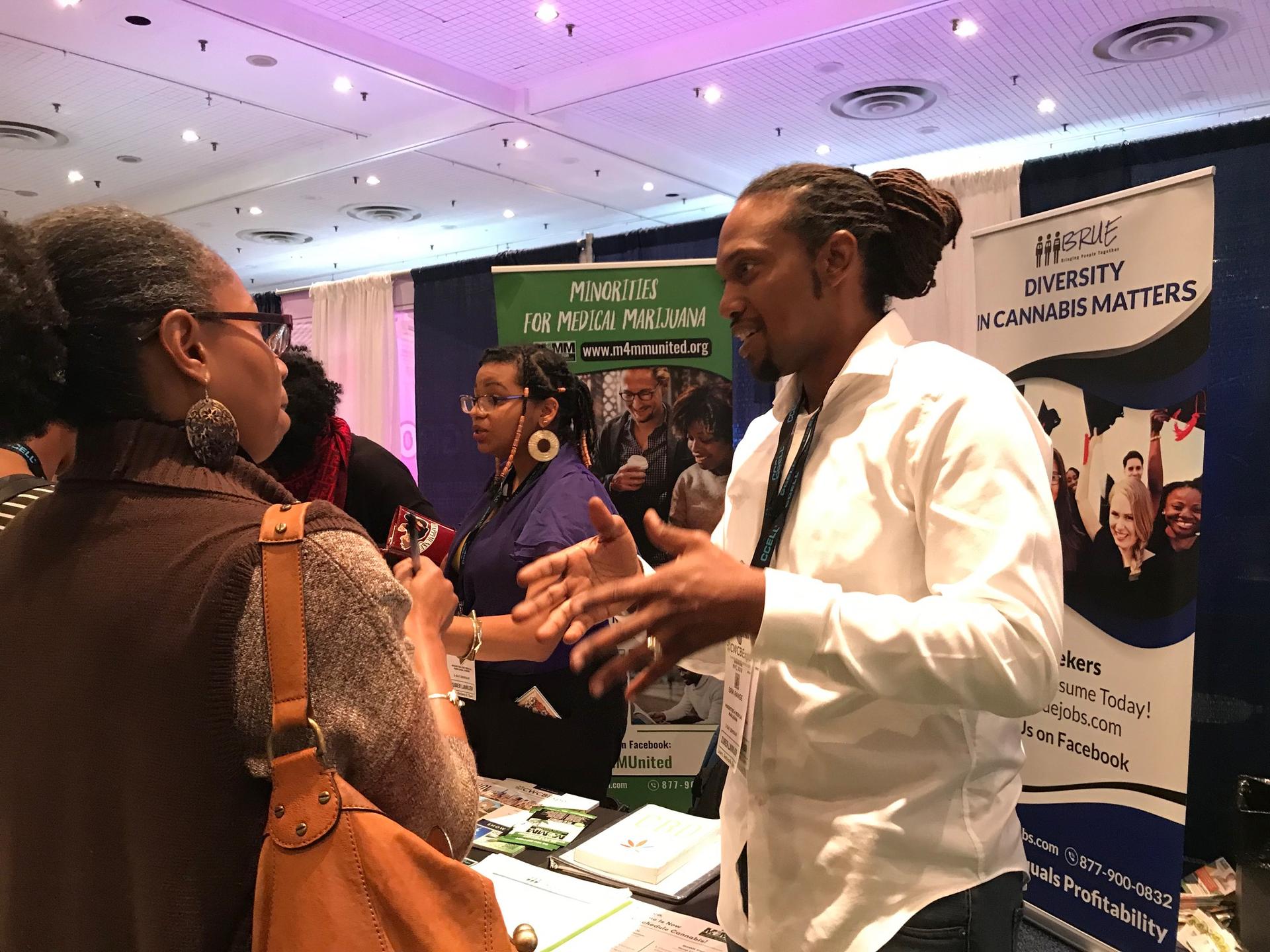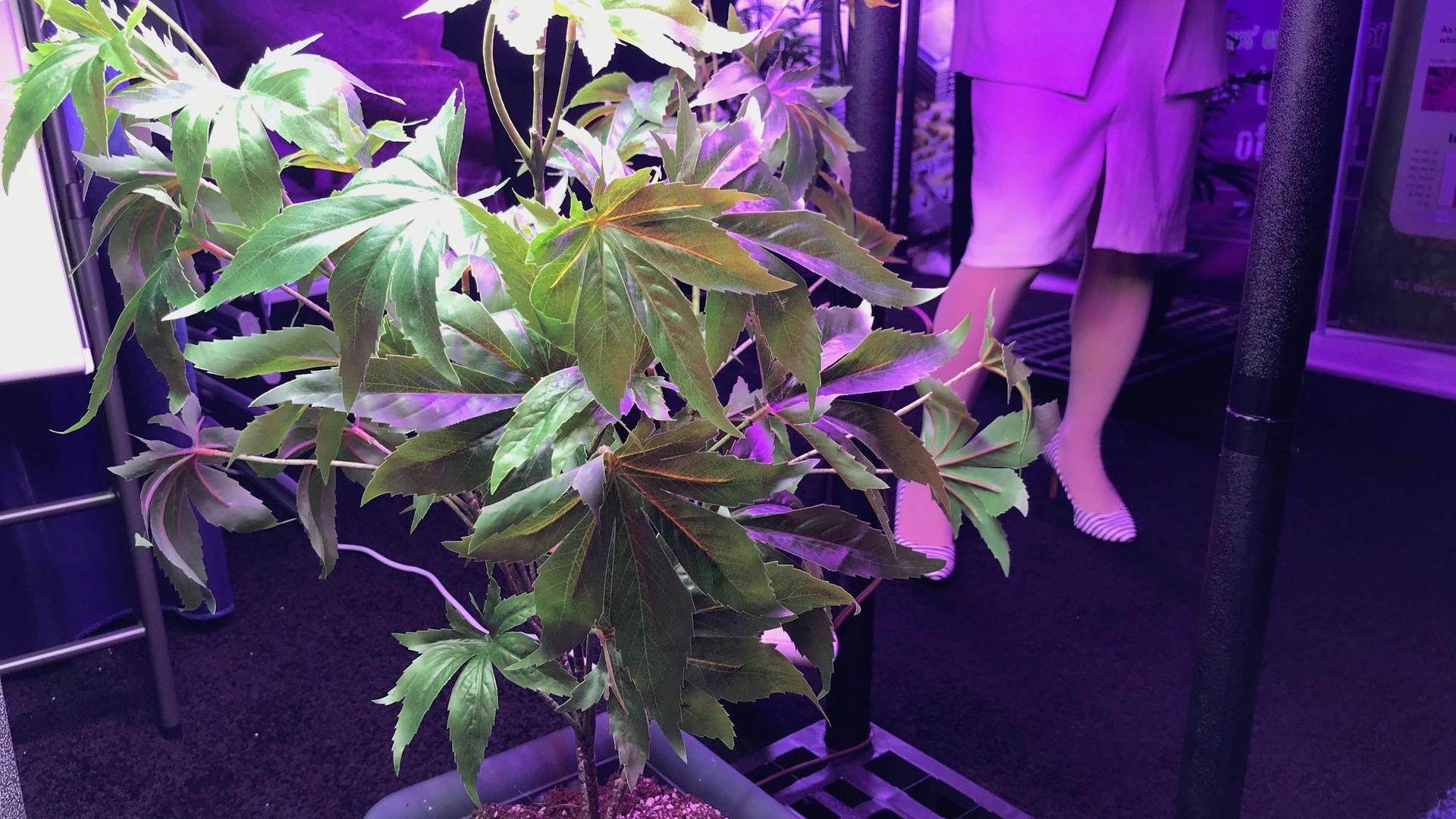Cashing in on the weed industry
Because recreational marijuana is illegal in New York, Yufing Corporation, a Chinese company that manufacturers LED grow lights specifically for cannabis, demonstrated their lights using fake marijuana plants.
Amid the industrial glare of LED grow lights, thousands of visitors converged on the Jacob K. Javits Convention Center this week for the sixth annual Cannabis World Congress and Business Expo to get a glimpse of the future — at least according to those hoping to cash in on what analysts predict will grow into an $80 billion industry within the next 10 years.
Over 180 companies from around the world came to show their wares — everything from CBD-laced dog treats to skateboards made from hemp — but the exhibits also illustrated the difficulties businesses face in navigating a global patchwork of laws when it comes to marijuana legalization, especially in New York, one of the 40 states where recreational marijuana is not legal.
Related: Colombia, long known for illicit drug trade, bets on legal marijuana
One vendor, Joe Cain, whose company Dino-Lite produces microscopes that help growers identify pests and fungus on cannabis plants, wasn’t allowed to demonstrate his product on an actual plant and had to play video footage instead. Elsewhere on the floor, Yufing Group, a maker of LED lights for cannabis, had plastic marijuana plants basking under the banks of lamps surrounding their booth. A small concession to local laws, to be sure, but workarounds like these have a massive impact on how the company does business.
Related: Jamaica wants in on the booming marijuana market. But will farmers be able to cash in?
As Julia Liu, one of the company’s representatives, explained, Yufing can’t actually test its grow lights in China, where all of its factories are based, because growing cannabis there is illegal. Instead, Liu says, they must ship the lights to their US headquarters in California for testing on live plants and then send the data back to China.
Related: Sessions’ war on pot could speed up marijuana legalization
While the present might be complicated, when conjuring a world where marijuana is legal to sell and grow everywhere, companies are free to dream big. Case in point: Cannabis-on-the-Go, a vending machine designed by a Connecticut-based company called FastCorp. For most of its 20-year history, FastCorp vending machines sold ice cream and frozen desserts, but recently, CEO Brian Weinstein decided to apply his “vacuum robotic delivery system” to the CBD market.
The company has also partnered with a software company that provides age-verification via an app and looks forward to the day when individual joints and bags of smokable marijuana will be available 24/7 via Cannabis-on-the-Go. Your next drug dealer, in other words, may be a robot.

Other exhibitors reminded visitors that the future of cannabis isn’t just about drugs; hemp, a form of cannabis, was banned from being grown in the US until last December despite its myriad industrial uses.
The National Hemp Association created a tableau vivant of the hemp construction industry of the future, in the form of a one-room house whose materials, from paint to flooring, were made entirely from hemp. According to association chair Geoff Whaling (who wore a suit jacket made of hemp at the expo), hemp could not only kickstart a huge, sustainable housing industry, it might just save the world. “If Puerto Rico was able to grow hemp within 120 days,” he said, “they would have been able to start not only feeding people, but to [build] a permanent house.”

Communities of color, who have suffered the most from marijuana’s criminalization, want to ensure they are well-represented in industries capitalizing on marijuana’s lucrative future. Roz McCarthy, the founder of Minorities for Medical Marijuana, says that African Americans currently have a representation rate of only 1%-2% in the industry, something she hopes to see change.

MMM hosts educational boot camps to help minorities master the logistics of starting and operating a marijuana business today, and is active in the US, Toronto and Jamaica, where, McCarthy explains, despite the many ways in which Rastafarian culture, music and religion have helped popularize marijuana, locals haven’t really benefited.
“A product that came ‘Jamaican Gold’ certified, you would be more like, ‘OK, I’ll try it,’” McCarthy said. “It’s all about product branding and marketing. If you leverage that, it could make the difference between a little bit of revenue and a whole lot.”
